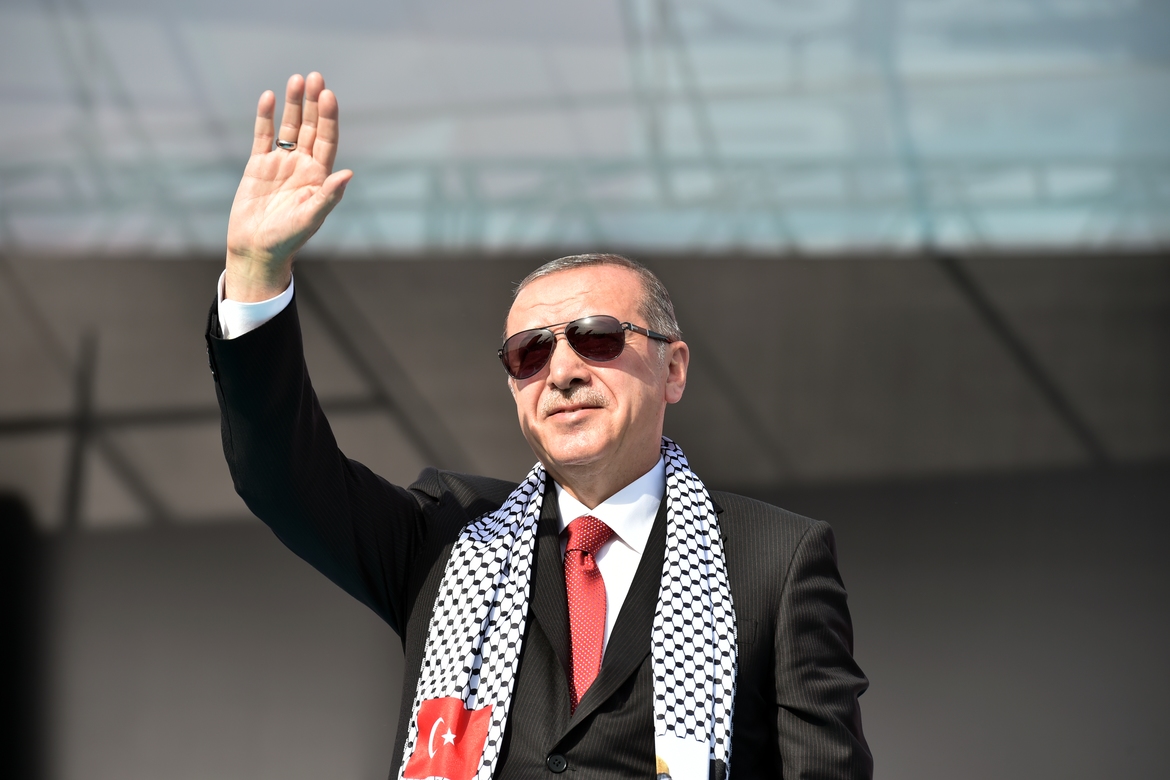Erdogan Escalates: Expulsion of Foreign Christian Leaders
"The only reason is that they are Christians," states a Turkish church organization.

President Erdogan is systematically expelling foreign Christians from Turkey. Photo: Shutterstock
First published: 06,04.2024. Written by: Johannes Morken Photo: Shutterstock
Since 2019, Erdogan's regime has expelled 115 foreign Christians who held leadership positions in Turkish churches. Some have been labeled a threat to national security.
"Turkey has the right to decide who can stay in the country. However, these are serious and discriminatory violations of the law, as the only reason for these decisions is that those affected are Christians," writes the Protestant Alliance in an annual report. The Alliance is an umbrella organization that brings together 205 congregations and communities of various sizes.
Including family members, 250 people have been expelled from Turkey since 2019.
Most of those expelled have lived in Turkey for years with their families. They have no criminal records and no legal proceedings against them.
"These are law-abiding people. We have a major humanitarian problem. When someone is unexpectedly banned from entering the country, it divides families and throws them into chaotic situations," the Protestant Alliance writes. The annual report on human rights violations is dated June 4, 2024.
You can find the report here: 2023-human-rights-violation-report.pdf
Denied Theological Education
No Turkish church, whether Protestant, Catholic, or Orthodox, is allowed to have a theological seminary. The right to train religious leaders is an important part of religious freedom, the report said. In the absence of national leaders, many Protestant churches have relied on foreign Christians to take on pastoral or other leadership roles.
The policy of denying residency renewals or entry permits was significantly intensified in 2019. That year, the policy affected 35 foreigners and 52 family members. The numbers were nearly the same in 2020. During the next two years of the pandemic, the extent decreased significantly, only to increase again last year: 33 foreign Christians were denied entry or did not have their permits renewed. Two out of three are from the United States. Erdogan's expulsion policy intensified after the American pastor Andrew Brunson, who was absurdly and without evidence convicted of alleged espionage and terrorism, was released in 2018 under American pressure.
Entry Ban
Almost all of them have been given the N-82 code, which requires them to obtain prior permission to be in Turkey. Turkish authorities claim that this is not a travel ban. However, everyone who has received this code has subsequently been denied a visa or residence permit.
"In practice, this has become an entry ban," the report says. Even people who received this code five years ago and have tried to re-enter Turkey after those five years have been denied entry.
"We must therefore consider this code as a lifetime ban on entering Turkey. In our view, this is both irresponsible and illegal," the Protestant Alliance said.
Serious Code
A few have been given another, even more serious code, G-87. This is used against people who are considered a general security risk.
"It has deeply hurt us and those who have received this code that our country - without a single piece of evidence - assigns this code to members of the Protestant community. These are people who are focused on living out their faith, who oppose violence, and who have no criminal record," the Protestant Alliance said.
In lawsuits challenging the travel ban, the state has responded that those with the G-87 code are engaged in activities harmful to Turkey. They have allegedly participated in missionary activities or attended family conferences organized by the Protestant Alliance or other gatherings.
"This conference has been held every year for 20 years. They are legal, open, and transparent gatherings," the Protestant Alliance replies.
In some cases, the plaintiffs have won in court. However, the bureaucracy has refused to follow the court's conclusions, which takes away the people's hope. Those banned who have Turkish spouses have won in court. But a couple in Ankara who won in court still faced a bureaucracy that refused to issue a new residence permit for the foreign spouse in the family.
Many cases are still in the judicial system. Lost cases are being appealed to the Constitutional Court of Turkey and further to the European Court of Human Rights.
Severe Human Rights Violations Against Christians
"We respect the sovereign right of our country to decide who can be within its borders and who cannot. But at the same time, we consider this policy to be a serious violation of human rights and discriminatory: The only reason for these decisions is that these people are Christians."
Chaos and Stress
The report further states:
"In addition, many foreign members of the Protestant community live in fear of being deported at any time. To protect themselves from the chaos and stress this causes, several individuals and families have decided to stop participating in church activities or have voluntarily left the country," the report said.
They have no idea how many people are affected.
Hate Speech Causes Concern
The annual report also reveals that in 2023 there was a renewed increase in hate speech, both written and verbal, against members and churches of the Protestant community.
In particular, the rise of hate speech on social media is a growing concern for the Protestant community.
"We encounter hate speech filled with insults and blasphemy directed at the church's social media channels. The hate is directed at church leaders, Christianity, Christian values, or Christians in general. Sometimes hate speech in the media leads to local incidents involving threats and actions. This concerns the Protestant community.
Earthquake Relief Efforts Earned Respect
Several of the Protestant churches were actively involved in relief efforts following the dramatic earthquakes in southeastern Turkey in February 2022. They have found that church-led relief work has made them much more respected and valued in the areas where relief efforts are ongoing.